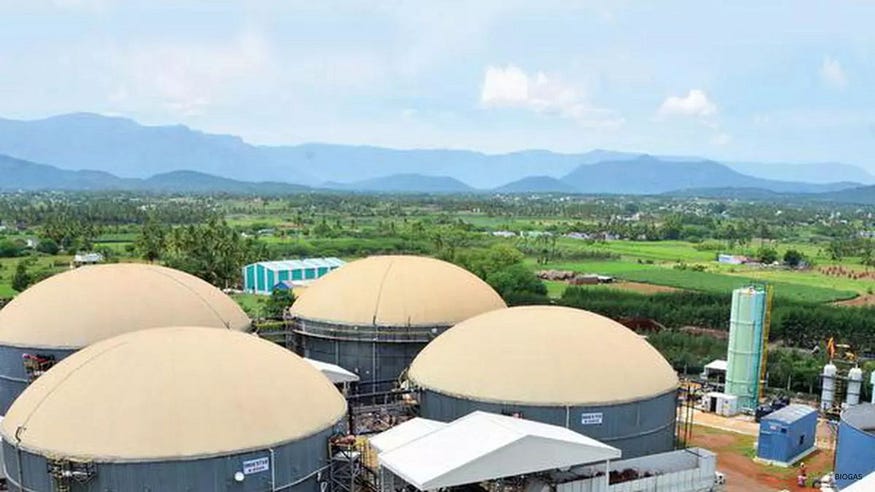Biogas in Kerala: A Green Energy Revolution Transforming Waste into Power

Kerala, known for its lush greenery and strong environmental values, is leading the way in clean energy solutions. Among its most promising initiatives is the push for biogas in Kerala — a sustainable method of converting organic waste into renewable energy.
What is Biogas?
Biogas is a type of biofuel naturally produced from the decomposition of organic waste. It primarily contains methane and carbon dioxide and can be used as a cooking fuel or converted into electricity.
Why Biogas in Kerala Matters
Kerala generates thousands of tons of organic waste daily — from households, markets, and institutions. Traditional disposal methods like landfills and open dumping lead to pollution, foul smells, and greenhouse gas emissions. Biogas offers a clean, cost-effective alternative by transforming that waste into energy and organic fertilizer.
Household Biogas Systems Gaining Popularity
Many families in Kerala are installing small-scale biogas plants at home. These units process kitchen waste and provide enough gas for daily cooking needs. Programs from agencies like Suchitwa Mission and ANERT offer subsidies, making biogas more accessible.
- ✔️ Environmentally friendly cooking
- ✔️ Reduces LPG usage
- ✔️ Generates bio-slurry for gardens
Large-Scale Biogas Projects in Kerala
Kerala has also launched community and municipal biogas plants. Notable examples include:
- Brahmapuram CBG Plant (Kochi) — A massive waste-to-energy project that processes over 150 tons of waste daily.
- Thrissur Sakthan Market Biogas Plant — Converts vegetable waste from the market into energy.
- Palakkad Jail Plant — Uses food waste to meet up to 50% of its cooking gas needs.
These initiatives prove that biogas in Kerala isn’t just a concept — it’s a working reality.
Government Support and Policies
The Kerala government has made biogas a key part of its waste management and renewable energy strategy. New flats and commercial buildings are encouraged — and sometimes required — to include biogas systems. State-level grants and technical assistance are helping more people make the switch.
Environmental and Economic Benefits
Biogas reduces methane emissions, lowers dependency on fossil fuels, and offers a sustainable solution for organic waste. It also creates green jobs in plant construction, maintenance, and training.
The Future of Biogas in Kerala
With growing awareness and government support, biogas in Kerala is set to become even more mainstream. Whether it’s a small kitchen unit or a city-scale plant, biogas is helping build a cleaner, greener Kerala for future generations.
Conclusion
The rise of biogas in Kerala is more than just a technological shift — it’s a powerful movement toward sustainability, energy independence, and responsible waste management. From individual households to large municipal projects, Kerala is proving that green energy solutions can be both practical and impactful. As awareness spreads and infrastructure improves, biogas will continue to play a vital role in shaping a cleaner, greener future for the state. Embracing biogas today means investing in a healthier tomorrow — for both people and the planet.

Comments
Post a Comment